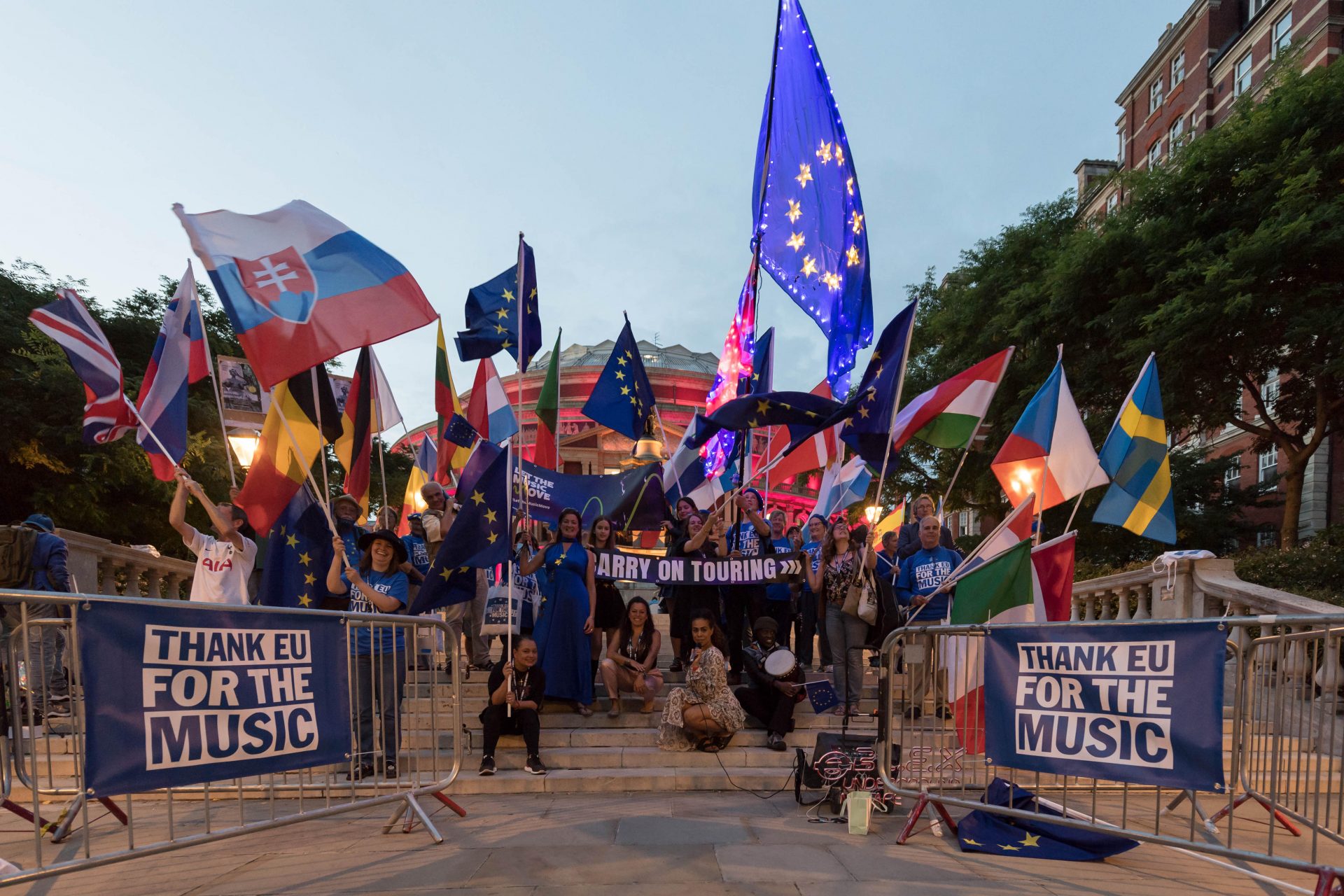“Really great news,” culture secretary Nadine Dorries tweeted last week. “We’ve been working with the Spanish government to make touring easier and they’ve just confirmed musicians no longer need visas to go on short-term tours.”
Indeed, musicians touring for up to 90 days will now have free access to Spain, but it is clear this hardly amounts to a resolution of a growing crisis – one caused entirely by Brexit – for the UK music industry.
British musicians have been in revolt over the potential destruction of EU touring ever since the referendum. Despite pre-Brexit warnings that “third-country” status and the loss of free movement of workers would hit artists touring in the EU particularly hard, the issue was bungled in the negotiations and musicians now face a bewildering bureaucratic nightmare if they are to ply their trade in Europe. Specialist insurance, visas and work permits, which are dependent on individual member state rules, additional paperwork and paying of duty on merchandise, goods passports (carnets) for equipment, and even documentation for musical instruments made of rare materials now obstruct their road to Europe.
Dorries’ deal with Spain notably does not resolve several of these issues, particularly those around band merch, which can be a major part of making a tour financially viable, and ‘cabotage’ rules, which limit the number of stops non-resident hauliers can make in the EU. And, of course, a special arrangement with Spain is hardly the unfettered access to the whole of the European Union that British musicians once enjoyed.
High-profile figures have been speaking out with increasing anger. “I’m livid about what the government did,” Elton John told The Observer shortly after the fifth anniversary of the referendum in June. “They made no provision for the entertainment business. To young people just starting a career, it’s crucifying.” He highlighted the obsession with our £1.4billion fishing industry versus the disregard for the £111billion creative industries, concluding, not unfairly: “The government are philistines.”
Shortly before John’s comments, the #LetTheMusicMove campaign was launched, making four key demands of the government: a transitional support package to cover additional costs, an agreement with the EU to allow UK artists to work without visas or work permits, the negotiation of a cultural exemption for cabotage rules, and, both in a spirit of fairness and in recognition of the importance of keeping the domestic music scene vibrant, streamlined entry into the UK for international artists. While John has not yet put his name to the campaign, more than 200 artists, from Little Mix to Radiohead, are supporting #LetTheMusicMove.
The Department for Digital, Culture, Media and Sport (DCMS) tried to claim a breakthrough in July, releasing a statement trumpeting that visa-free short-term touring was allowed in 19 member states. While the Daily Express excitedly reported this as an example of Brexit “success”, the announcement was, in fact, just a confirmation of existing rules in those states for all third-country nationals. Some states allow as few as seven working days a year under these rules.
The Featured Artists Coalition, the UK trade body behind the campaign, and the Musicians’ Union were unamused by this framing of the status quo as government success. Now Dorries has repeated the misleading emphasis in her tweet, saying: “21 Member States now offer visa & permit-free routes for touring performers. 6 more to go,” as if her department had secured those arrangements. Embarrassingly, Ian Smith of the #CarryOnTouring campaign told NME that the original 19 only became 20 when he pointed out to the DCMS that Romania already allowed visas for such purposes.
It doesn’t look as if there will be genuine action on resolving this issue any time soon. Former culture minister Caroline Dinenage’s admission in January that the UK rejected an EU offer of a special “musicians passport” for touring artists, because it would have limited the UK’s control of its borders, certainly didn’t inspire confidence. The situation on the ground today is that artists face increased costs of potentially thousands of pounds, making many tours simply unviable.
Things were so different in the past. #LetTheMusicMove supporter, Blur drummer Dave Rowntree, has said: “[We] played our first gig outside the UK in Rotterdam in February 1991. We jumped on a ferry with no restrictions for us or our gear. If we were starting out today, we wouldn’t be able to afford it.”
And despite playing such a dominant role in musical innovation in the 1960s, UK artists faced genuine problems touring in Europe before the UK’s accession to the EU. As previously reported in TNE, despite Brexiteer Roger Daltrey saying of the UK’s exit, “What’s it got to do with the rock business? As if we didn’t tour in Europe before the f**king EU,” The Who, in fact, cancelled a 1966 tour of the Netherlands due to a failure to gain work permits, and the period between accession in 1973 and the and of the transition period in January 2021 was undoubtedly a golden era of low-cost, trouble-free EU touring for British artists.
The true impact of Brexit on the UK’s music industry is yet to be seen and the real loss will be in intangible assets. The government’s treatment of today’s artists suggests Boris Johnson has little understanding of what our music is truly worth.
Live Music and Brexit in Five Songs
The Who, Won’t Get Fooled Again (1971)
Despite making dismissive comments about the impact of Brexit on UK musicians’ EU touring activities in 2019, Roger Daltrey put his name to a letter in The Times calling for government action on the issue. Social media wags were quick to evoke this song in response to his apparent conversion.
Elton John and Kiki Dee, Don’t Go Breaking My Heart (1976)
Elton John seemed hurt about the government’s uncaring attitude to musicians when interviewed earlier this year, bringing to mind one of his biggest hits. “We weren’t even thought about,” he said.
Skunk Anansie, Weak (1996)
The anger and defiance of the gritty rock band’s single matches that of their message of support for the #LetTheMusicMove campaign: “We need action, we need support, we need access… and we NEED IT NOW.”
Little Mix, Shout Out to my Ex (2016)
The trio are supporters of the #LetTheMusicMove campaign, and their massive No. 1 hit echoes the anger of betrayal, which many artists now feel towards a government that failed to act in their interests during the Brexit negotiations.
The Beatles, Here Comes the Sun (1969)
Chosen by Boris Johnson as one of his Desert Island Discs back when he was editor of The Spectator, the song is a reminder of the role gigging in Europe has played in the UK’s musical past, the band being nearsynonymous with Hamburg.




